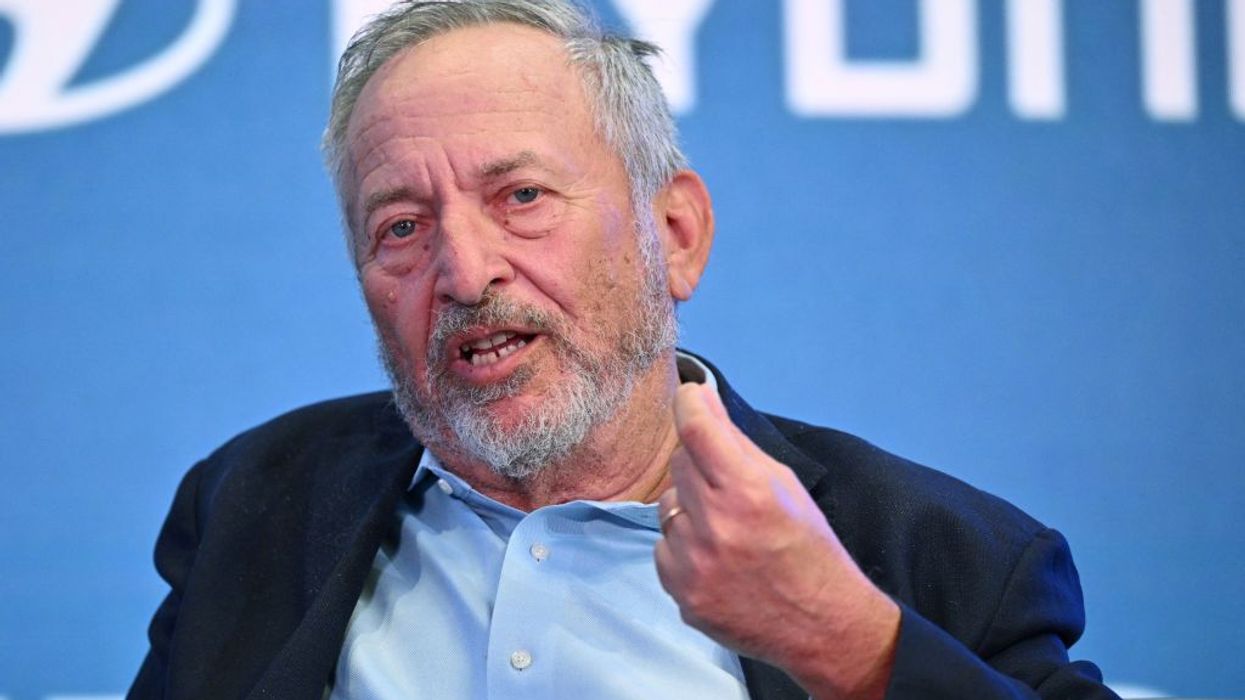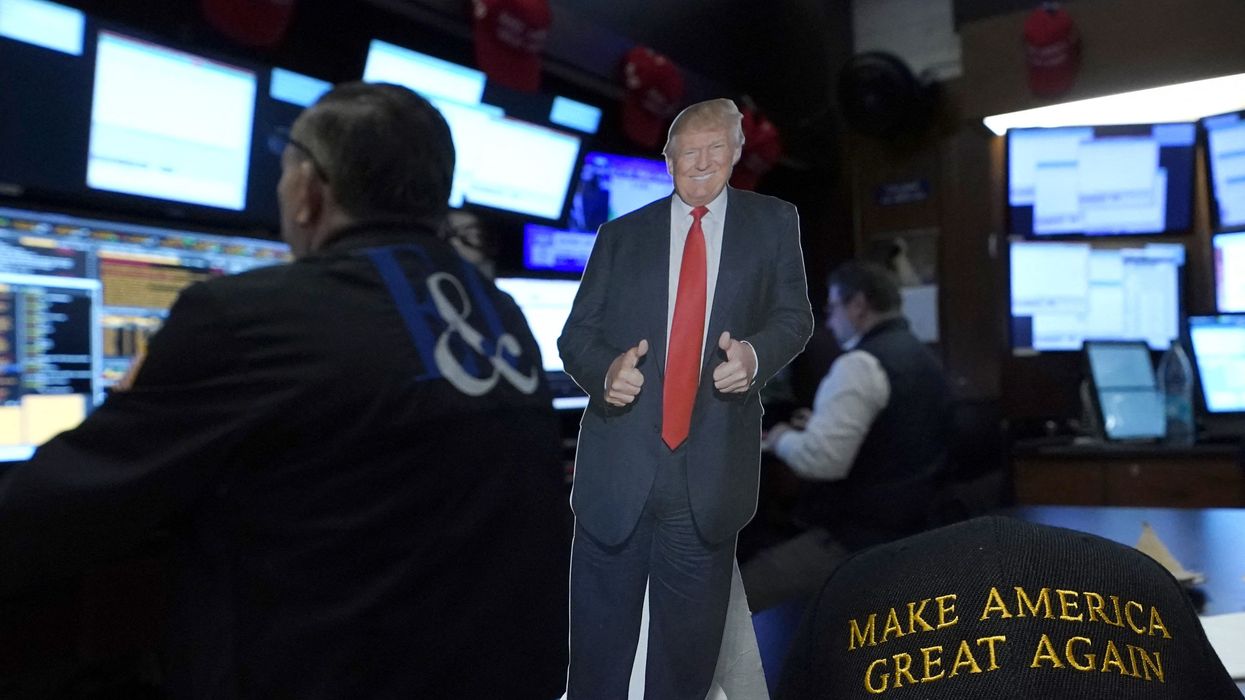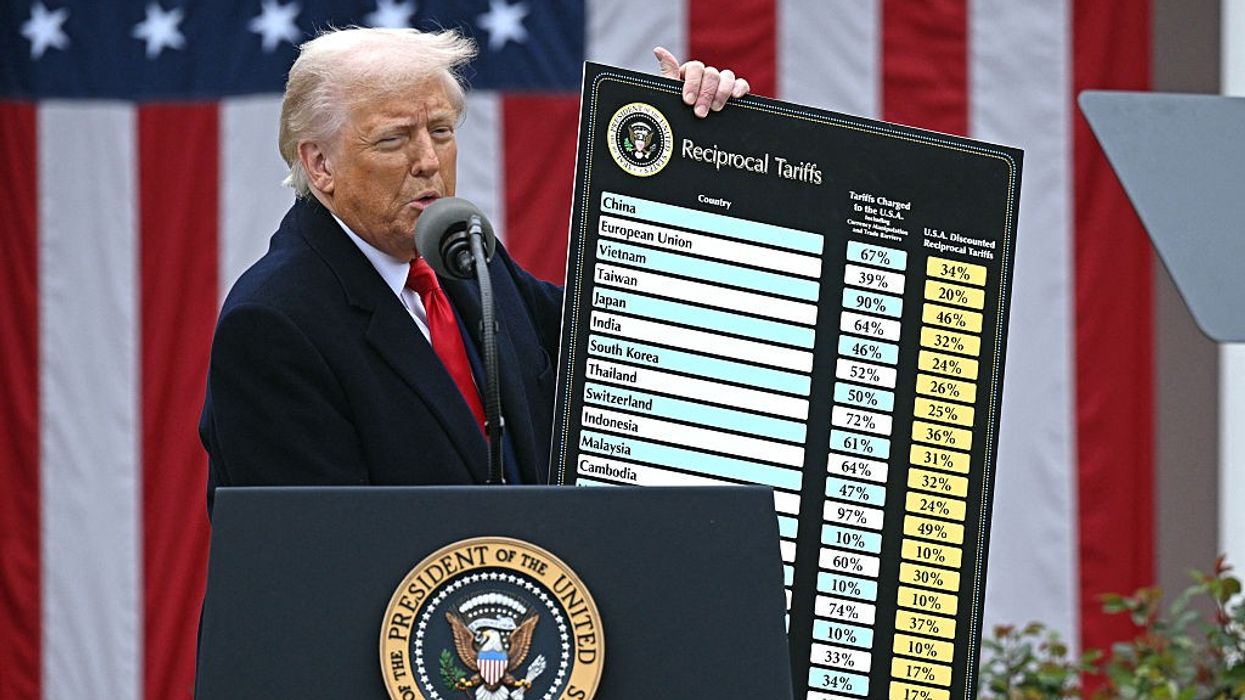5 Lessons From the End of the Larry Summers Era
Summers’ influence was immense, but so were his blind spots. It’s time for economics that values people and the planet over power and prestige.
The era of Larry Summers’ dominance in American economics is over. It’s a good moment to take stock.
Summers has been just about everywhere money talks. From Harvard to the Treasury, through the Clinton and Obama White Houses, onto Wall Street, and into think tanks and policy networks that shape the nation’s economy—including the Center for American Progress, the Peterson Institute for International Economics, and the Hamilton Project at the Brookings Institution—he has left a mark few economists ever achieve.
Yet his career also shows the risks of concentrating authority in economists whose prestige, ambition, and attachment to abstract models can outweigh attention to real lives. Time and again, he let the interests of financial elites, spreadsheet obsession, and ingrained biases create troubling blind spots. The consequences for ordinary people and the planet simply faded into the background.
The silver lining: Summers’ record offers a clear road map for reform, highlighting what economics should not be: a discipline that prioritizes prestige, profit, and elegant equations. And it points toward what it could be: smarter, fairer, more accountable, and genuinely focused on human well-being and the Earth we inhabit.
Lesson 1: Sexism is Costly
Let’s be blunt: Economists who don’t see women as equals weaken the very core of their discipline.
Tasked with understanding how people, resources, and institutions interact, they can’t model societies, predict outcomes, or craft effective policy if they don’t accurately perceive half the population. Bias isn’t just a moral failure. It corrupts analysis.
If Summers had respected women’s intellectual authority, he might have heeded Brooksley Born when she pushed to regulate derivatives as chair of the Commodity Futures Trading Commission (CFTC).
Summers’ comments while president of Harvard suggesting women lack the natural faculties to excel in higher mathematics and science reveal a deeper flaw: outdated, discriminatory, and intellectually sloppy thinking. (Any lingering doubt about his mindset vanishes when you read his 2017 email to Jeffrey Epstein: “I observed that half of the IQ in world was possessed by women without mentioning they are more than 51% of population.” A leap beyond casual sexism, this was a bold assertion of women’s intellectual inferiority).
Such attitudes have real consequences for economics, leadership, and policy.
Consider: If Summers had respected women’s intellectual authority, he might have heeded Brooksley Born when she pushed to regulate derivatives as chair of the Commodity Futures Trading Commission (CFTC). Instead, he joined forces with Alan Greenspan and Robert Rubin to shut her down—a disastrous misstep that helped set the stage for the unregulated derivatives boom and the 2008 financial crisis.
America is still paying for that one.
The economics profession itself pays a steep price for sexism. Institute for New Economic Thininkig research by Giulia Zacchia, Orsola Constantini, and Moshen Javdani shows that structural bias in hiring, research evaluation, and theoretical norms pushes women and fresh ideas to the margins, producing models and policies that miss the full picture of how economies really function.
Summers’ personal conduct compounds his professional failings. In the Epstein files, Summers discussed a Chinese female mentee in explicitly sexual terms. He detailed his attraction and referred to the possibility of a sexual relationship, asking Epstein whether it was “meaningful” to discuss “the probability of my getting horizontal w peril,” a code name for the woman in question. He speculated about how to make himself seem “invaluable and interesting” to her, implying that intimacy could follow. This behavior obviously violates professional boundaries.
Sexual harassment isn’t just harmful to the people targeted—it hurts businesses, families, and the economy too, as I have documented (Parramore, 2018), while Zacchia and Izaskun Zuazu emphasize the need to challenge the deep-rooted gender inequalities that make harassment possible. Unfortunately, Summers’ sexism proved too deeply rooted to excise.
Summers’ departure opens the door to economics that not only produces more accurate models and better outcomes for society, but fully embraces the talents and insights of female students and economists.
Lesson 2: When Economists Favor Wall Street, America Suffers
Summers’ career offers a clear example of how cozy ties between elite economists and Wall Street create harm.
While president of Harvard (2001-2006), Summers had what colleagues described as a “huge influence over Harvard money matters.” He pushed for a risky investment strategy for the university’s endowment, even though as early as 2002, Iris Mack, an analyst at the Harvard Management Company (HMC), warned Summers’ chief of staff about what she described as “frightening” use of derivatives and inadequate risk-management protocols. But her warnings, and those of Jack Meyer, the head of the endowment, who warned of investments in “stocks, bonds, hedge funds, and private equity,” were disregarded by Summers. (Mack was dismissed, and alleges she was fired for voicing concerns; she later reached a settlement with the university).
Summers’ investment strategy backfired sharply when the 2008 crash hit, costing the university dearly: 27% of its endowment, to be precise. By then, Summers was working at a hedge fund and would soon spin through the revolving door into Barack Obama’s White House.
In another telling episode, Summers shielded his colleague Andrei Shleifer during the scandal over Harvard’s 1990s-era Russia privatization program. Shleifer and associates were found liable by a federal court for using insider access to invest in Russia while advising on US-funded economic programs: a clear conflict-of-interest. Harvard ended up shelling out a $26.5 million settlement, but Shleifer kept his tenured position, thanks in part to Summers’ influence.
Summers’ Wall Street-friendly instincts have reached deeply into policy. During the 1990s and early 2000s, he advocated deregulation and reduced oversight for banks, contributing to the conditions that triggered the 2007-2008 financial meltdown, when millions of regular people lost jobs, homes, and savings. After public office, he continued profiting from that same financial ecosystem, collecting large fees through consulting, speaking engagements, and corporate board positions.
In Wall Street’s corner he remained: In 2023, he pushed the government to guarantee all deposits at Silicon Valley Bank, arguing that failing to do so would be a “Lehman-like error,” while downplaying conflicts of interest with firms tied to the bank. He warned against listening to “moral hazard lectures” about bailouts. (It was not reassuring to learn that Summers turned out to have undisclosed ties to firms connected to SVB’s largest depositors).
In 2025, Summers warned that asset prices are “frothy,” but instead of calling for regulations or protections for people who might lose their savings, he framed his concern in a way that would calm investors. His focus seemed to be on keeping financial elites calm above all else.
Summers has consistently emphasized market stability over robust support for working people, advocating Fed policies that favor large banks and investors. Coupled with his continued advisory roles with financial-sector firms (many now lost due to the Epstein files), these moves reinforced a career-long pattern: prioritizing the interests of the wealthy while leaving Main Street to fend for itself.
Which brings us to the next lesson.
3. Working People Must Be Prioritized in Economics
Regrettably, it bears repeating that economics has too often been treated as a game for elites, focused on numbers on paper, financial flows, and abstract deficits, while the jobs, homes, and livelihoods of working people are pushed aside. Summers personifies this very problem.
For example, Summers pushed interest‑rate hikes and emphasized deficit reduction over job creation. As political protégé of deficit‑hawk Rubin, and later as head of the National Economic Council (NEC), under Obama, Summers repeatedly plugged austerity, even at times when stimulus was badly needed to support working people.
In December 2008, a full month before Obama’s inauguration, Summers drafted a 57‑page memo warning of a grim economic outlook, but he also downplayed how severe the downturn could be. That memo laid the foundation for a flawed stimulus plan and economic strategy that prioritized deficit targets over urgent jobs recovery.
Larry Summers’s record on global economic policy offers a revealing portrait of his priorities: market logic over human lives, and financial returns over planetary survival.
The results were stark. Actual job losses far outpaced the administration’s optimistic estimates, and the recovery was painfully slow for millions of Americans. After leaving the NEC, Summers went on to warn against aggressive fiscal support, focusing instead on deficit risk and inflation concerns, often at the expense of middle‑class wage earners trying to get back on their feet.
In the wake of the Covid-19 pandemic, Summers repeatedly championed what many view as market-first, investor-friendly economic priorities over aggressive support for working-class Americans. In 2021 he blasted the stimulus bill (American Rescue Plan) as “the least responsible macroeconomic policy in 40 years,” warning that huge fiscal spending combined with loose monetary policy was “kindling” an inflation fire.
This neglect of working people is a failure of economics. When economists treat deficits and interest rates as ends in themselves, rather than tools to support lives and livelihoods, they lose the real purpose of economic analysis.
For too long, the rules of economic policy have been written by those fail to understand the stakes of unemployment, insecure work, or debt. Larry Summers isn’t just a powerful economist, he’s also very wealthy: His net worth rocketed from around $400,000 in the mid-1990s to $7-31 million by 2009, largely through high-paid Wall Street consulting, hedge-fund work, and speaking fees. Today, estimates put him at roughly $40-50 million.
Perhaps this background helps explain his longstanding emphasis on austerity over labor-market protections.
4. Economics for the Planet, Not Just Profits
Larry Summers’s record on global economic policy offers a revealing portrait of his priorities: market logic over human lives, and financial returns over planetary survival.
Over decades, he repeatedly helped shape policies that forced vulnerable populations, particularly in developing countries, to subordinate basic needs like health, education, and environmental protection to debt repayment and economic “efficiency.”
One episode has come to symbolize this worldview. In 1991, while serving as chief economist for the World Bank, Summers’ office circulated an internal memo drafted by Lant Pritchet and cosigned by himself, which suggested that dumping toxic waste in developing countries would actually benefit them economically. The memo noted that, because wages and estimated “economic losses” from illness were lower in developing countries, the health costs of pollution would be “cheaper” there than in wealthier nations. Although Pritchett later insisted the memo was merely sarcasm, the fact that it moved through Summers’ office and carried his signature sparked international outrage.
After the memo became public, Summers told a reporter: "I think the best that can be said is to quote La Guardia and say, 'When I make a mistake, it's a whopper.'"
Many agreed. Brazil’s then-Secretary of the Environment Jose Lutzenburger, excoriated Summers’s logic as “perfectly logical but totally insane,” noting that it exemplified “the unbelievable alienation, reductionist thinking, social ruthlessness, and the arrogant ignorance of many conventional ‘economists’ concerning the nature of the world we live in.”
This was not just a one-off. In the 90s, Summers used his power to block meaningful climate action, opposing US participation in Kyoto Protocol. He claimed that rapid greenhouse‑gas reductions could carry “unknowable economic consequences.”
Even when he later moved toward what some considered climate-friendly policies, his proposals revealed much about his real concerns. For instance, in 2017 he backed a modest carbon-pricing scheme, but only if it replaced stronger environmental regulation and came with rebates and border adjustments. In an op-ed titled, “Why we should all embrace a fantastic Republican proposal to save the planet,” he favored “raising the price of carbon and less emphasis on command-and-control regulation.” That approach aligns neatly with the wish lists of deep-pocketed polluters and carries little of the urgency environmental scientists and communities fighting climate disaster demand.
Summers also supported the North American Free Trade Agreement (NAFTA), which has been widely criticized for undermining environmental regulations in Mexico, weakening labor protections, and allowing corporations to externalize ecological costs across borders. Once again, Summers appeared to prioritize trade liberalization and corporate profits over environmental justice and workers’ rights.
Under Obama, he continued to warn of potential economic risks of aggressive efforts to limit carbon emissions. More recently, in 2022, Summers promoted a World Bank plan to leverage massive new borrowing to address poverty and encourage a “global green transition.” On the surface, this looks progressive, until the focus on financing and efficiency is revealed. Rather than advocating real structural change, Summers continues a pattern of putting capital and market mechanisms over meaningful, just environmental action.
5. A New Beginning
In the big picture, Summers’s retreat leaves both a gap and a long‑overdue opportunity.
More than ever, the US—and the world—needs economists who put real people first: who design policies that protect jobs, homes, and communities; who confront climate change rather than downplay it; who treat women, working people, and marginalized groups as full participants; and who put their focus on social well‑being.
As the 19h‑century critic John Ruskin famously wrote, “The only wealth is life.” Economics must finally reflect that truth (Spear, Parramore, 2015).
We now have a chance to build a life‑centered economics, one that prioritizes human flourishing, environmental stewardship, and equitable opportunity—not just the interests of the elite few.
The opportunity is here. Let’s seize it.


